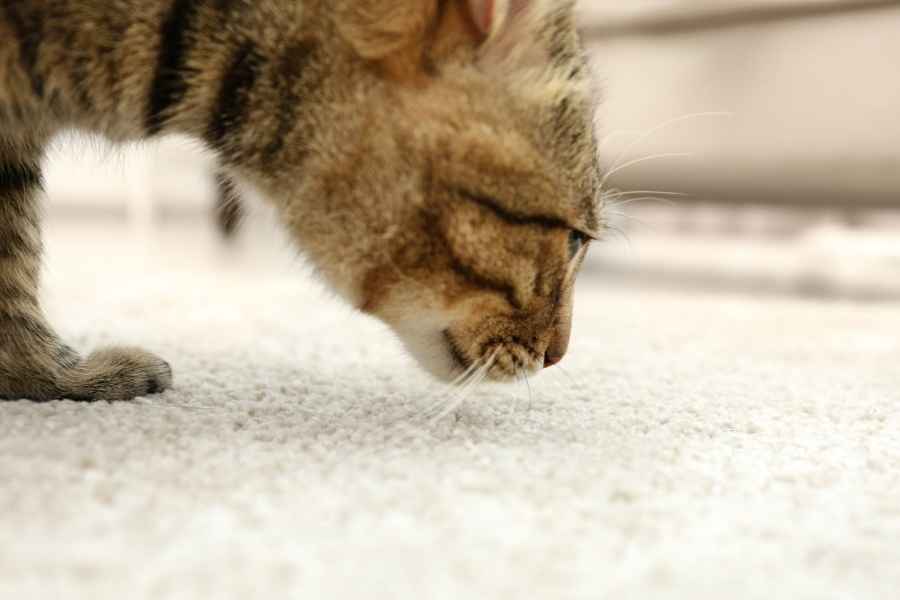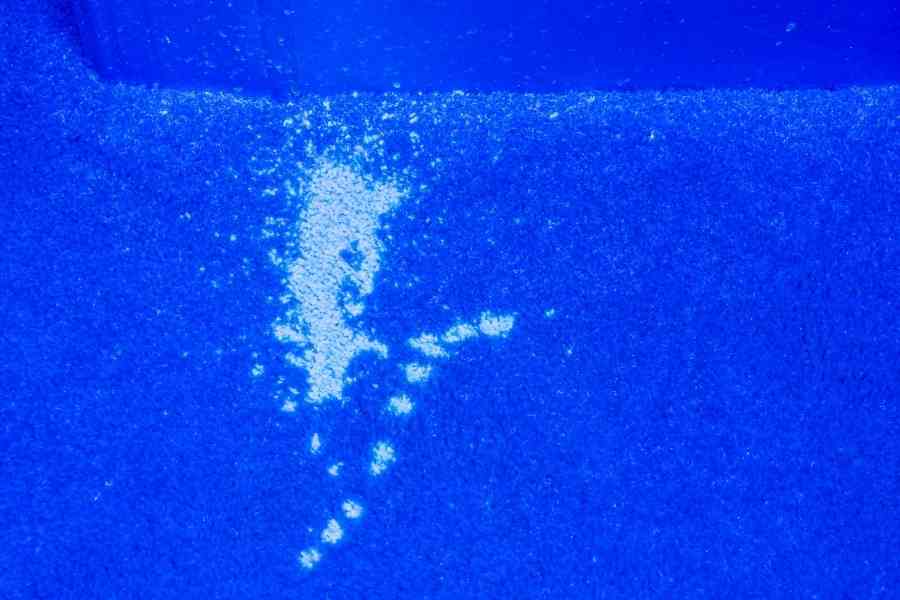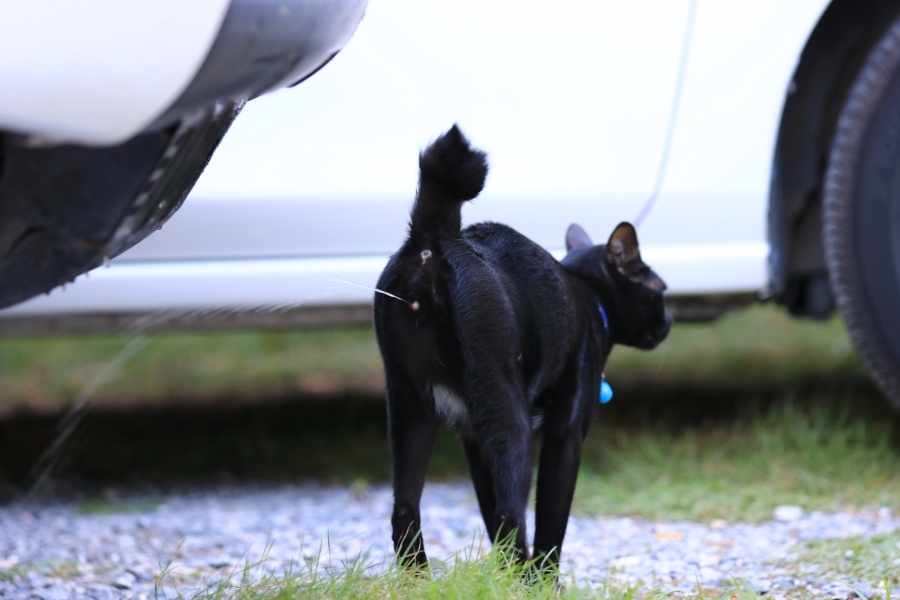If you wonder whether cat urine odor will finally dissipate from your carpet, fabrics, couch, or wood subflooring soon, well, it might never. At least not on its own. How long does cat urine odor last? When left to its own devices, it can last a long, long time. You must conduct a thorough cleaning to get rid of cat urine odor.
Removing cat urine odor requires homeowners to use permanent solutions that will break down the urine into its constituent molecules and then get rid of them. The cleaning solutions you choose might be as simple as using baking soda, vinegar, and hydrogen peroxide. Alternatively, you can use specialized cleaning solutions like enzymatic cleaners.
Cats are elegant and cute to have around our homes, but there is no denying that their urine stain and odor can be a real menace. The initial step to addressing the cat urine problem in your home is to understand why your cat is spraying in strange areas around the house. It is because:
- Litter box issues – Your cat is not yet used to the litter box. It could be because the litter box is not changed or cleaned often
- Your cat is experiencing psychological or health problems and needs medical intervention.
- The cat is trying to mark territory the only way it knows how: by spraying
We will show you how to get rid of the cat urine odor completely. Most cleaning products can get the urine stain out and kill bacteria.
However, they cannot get rid of the cat urine smell completely.
So, how long does cat urine odor last? Cat urine odor can last for years, sometimes permanently, unless you locate the stained spot and use the correct remedies to break down the pungent smell on your carpet, couch, or washable fabric.
Let’s discuss this further to help you understand why the pungent odor of cat urine lasts so long.
Learn How To Clean Cat Urine On Mattresses
How Long Does Cat Urine Odor Last?

Cat urine stain and odor are stubborn and notoriously tricky to eliminate. The majority of the available cleaning products cannot decompose the ammonia and compounds responsible for the pungent smell in cat urine.
You may scrub the stain using your favorite cleaning agent, use different fragrances to cover up the smell, or fling open all doors and windows all day without much success.
Air fresheners cannot help – many experts opine that you only become insensitive to cat urine because of their fragrance, but the cat-urine smell is still there. It can get worse for home occupiers.
The slow decomposition of urea and other metabolic by-products in urine is one of the reasons cat urine odor persists. While fresh cat urine will have ammonia, the decay of urea over time releases more ammonia.
Additionally, when uric acid decomposes, it releases ammonia, increasing the pungent odor. As the urine spot gets older, the urine decomposes even more to produce mercaptans, which last a long time.
Unfortunately, these molecules do not wash away with water. Cleaning and disinfecting the urine spot will only kill the bacteria in the area; it will not remove ammonia, urea, or uric acid. If the urea and uric acid come into contact with water in the future, the decomposition process resumes, releasing a pungent ammonia smell.
You Might Be Interested In Learning How To Stop Cats Peeing On Your Bed
Sometimes, the offending odor does genuinely disappear for a short time, only to return later during a humid day. The urine odor can effectively last forever in your home on account of urine decomposition.
It’s important to note that the constant exposure to cat-urine odors “numbs” the olfactory cells responsible for detecting the odor, rendering the house occupants oblivious to the pungent smell. It is why some people may never really sense the smell of cat urine in their home, but your guests will! How embarrassing, right?
Fortunately, there are effective cleaners that will eliminate cat-urine odor. Please read our guide on how to get rid of the pungent smell when your whole house smells like cat urine.
How Long Does Cat Urine Odor Last In Different Materials And Surfaces?

Cat urine stains and smells are tough to deal with when they occur on absorbent surfaces like the carpet, couch, and soft furnishings like curtains, seat covers, and decorative fabrics. These materials soak up the urine and hold on to the ammonia and ammonia-producing urea.
Likewise, you don’t want cat urine to percolate deep into hard, porous surfaces like unfinished/unsealed wooden floors, walls, or finishes like linoleum material. If the unsealed wooden floors soak up cat urine, the odor does not dissipate and will last indefinitely.
You may have to rip off the carpet and repeatedly treat the woodwork to get the smell out of the house.
Unsealed hardwood floors lack a protective coating/sealant to protect the wood from moisture or cat urine. When unsealed hardwood floors soak in cat-urine, you may have to replace or repaint with BIM or clean the affected area with enzyme cleaners. In most cases, the smell will not easily come off despite scrubbing with different cleaning products.
Note: Flooring experts often discourage mopping unsealed wooden floors with water or liquid cleaners. Here is how to clean unfinished wooden floors before treating the urine spot.
Why Does Cat Urine Smell?
There are many compounds found in a cat’s urine, but the one that bears the most responsibility for the pungent smell is ammonia. Ammonia is a colorless gas but has a strong smell that almost feels like it is “pricking” you so sharply and strongly that you cannot take a rest in your home.
All animals, including humans, produce ammonia in their urine. However, to most people, the cat-urine odor is the most unbearable, mainly because the concentration of ammonia is high.
However, unless there is an underlying medical condition or change in diet, the more diluted your cat’s urine is, the milder and less intense its odor is.
Encouraging your cat to drink water will help dilute the concentration of ammonia, thereby reducing the concentration of the pungent odor.
Due to its high testosterone level, male cat-urine tends to be more pungent. Click here to learn more on why cat pee smells so strongly and easy remedies like encouraging your cat to drink water.
Why Does My Cat Spray?

Naturally, a wild cat – one that has never had human contact or has significantly reduced human contact over time – will spray around to mark its territory. Domesticated cats also use this turf-marking behavior when they feel threatened and want to minimize contact with other cats.
In most instances, you may find feces or urine drops outside the litter box and will need to determine if your pet cat is merely marking its territory or if there are other factors such as a UTI infection or bladder problems.
At times you may need to maintain closed windows in your home if that is what it takes to keep the smell of your neighbor’s cat outside the house. Some experts recommend keeping cats that do not get along in separate rooms if you have multiple cats in your home.
Avoid negative reinforcement, such as shouting at your cat out of frustration, because that will exacerbate the situation. Neither will deterrent sprays help; they add to your cat’s stress and nervousness. A deterrent spray may stop the cat from marking a particular spot and might push them to find other areas to spray.
Spraying in cats results from behavioral concerns, stress, pain, or some other underlying issue. According to experts, the spraying is likely to continue until the problem is addressed or conditions are improved for your cat.
Additionally, you may have to take your cat to your veterinarian to have it checked for illnesses like UTIs.
Stress triggers in cats include
- Infighting among cats in the same home
- A high number of neighborhood cats
- Home invasion by a foreign cat
- New members of the family like a baby or puppy
- The continued absence of the owner
- Undue punishment being meted out on the pet cat
Learn How To Clean Cat Poop Of Your Shoes
Learn How To Stop Your Cats Peeing On Your Clothes
How To Get Rid Of Cat Urine Odor
Probably, you have tried using different brands of detergents and sometimes disinfectants to get rid of the cat-urine stain and the smell. However, as you’ve discovered, regular cleaning chemicals will not suffice to rid your house of cat urine odor. Read this article on how you can get rid of cat urine odor permeating your home.

